Dwell
About the Project
Dwell™ is a tabletop simulation game to teach about situational poverty and its impact on one’s choices, health, livelihood, communities, and families. Players perspective-take as a provided character who must support and care for themselves and possibly an entire household. Dwell™ is primarily intended to be a facilitated game, particularly when played by multiple sets of players concurrently, as a curriculum module or part of a workshop.
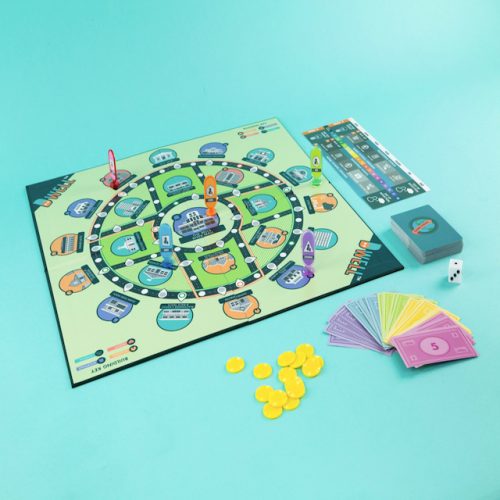
Objectives
By the end of the game, players should be able to:
- Discuss how poverty impacts health, healthcare choices, and healthcare access
- List new facts and statistics about how poverty impacts people
- Apply greater empathy when caring for others who are economically disadvantaged
- Begin developing new strategies to help educate and connect economically disadvantaged people with community resources
Dwell™ accomplishes these objectives as a roleplaying game in which players navigate Dwellville over the course of a simulated month, one week at a time, as one of 5 characters trying to meet their long- and short- term goals. In addition to living in Dwellville as one of its residents, players participate in regular “reflections” (at the end of each in-game week on “Saturday”) during which they are encouraged to talk as their game character (in the first person) with the other players at their table about their experiences during the simulated week of play: what were the successes and challenges, how are they planning to meet their goals in the next week, etc. In addition to reflections, players select a category and share a did-you-know statistic or fact on “Sunday” from an online fact library and then talk about how it pertains to their in-game experience. Finally at the end of the game, players participate in a larger debrief that allows them to talk about and compare their extended experiences as each character. Additionally, players are asked to reflect upon and share how this experience may change future interactions with people who are economically disadvantaged.
Background
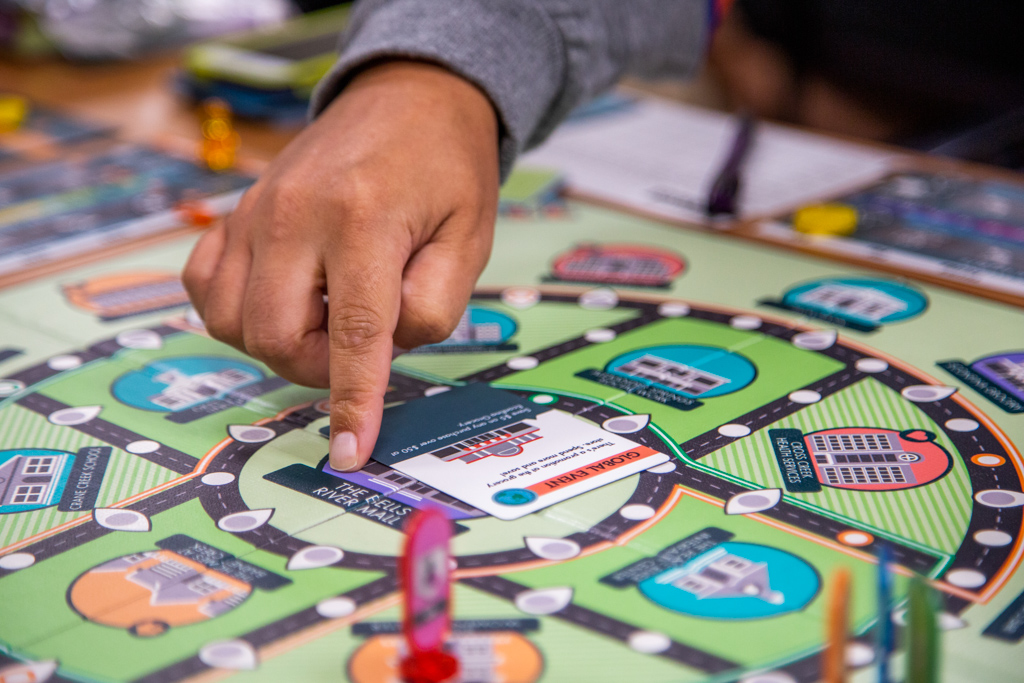
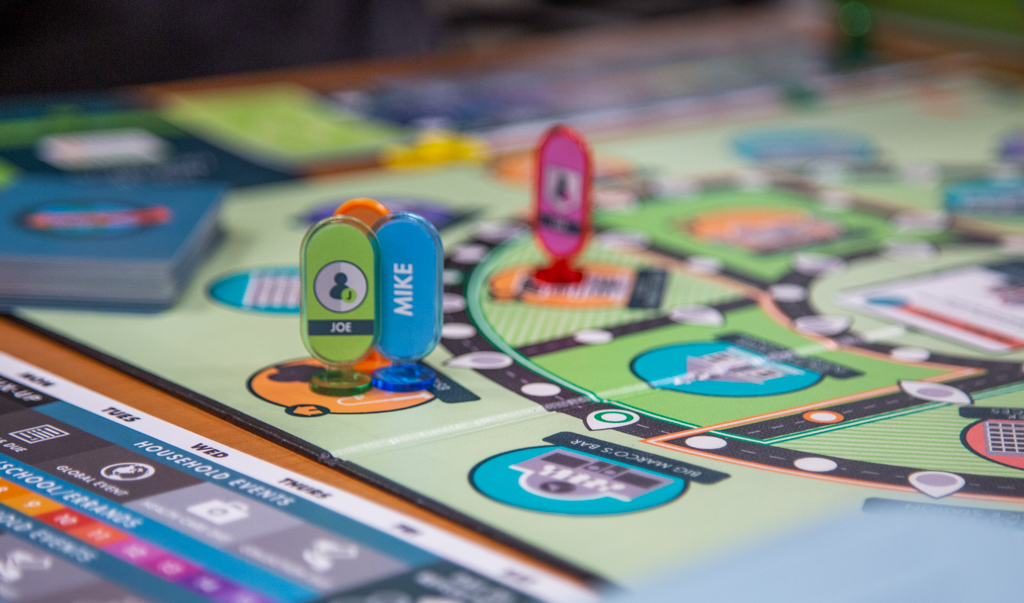
Poverty is an issue that allied health and healthcare professionals face when practicing in any setting, including hospitals, clinics, and schools. Poverty is a ubiquitous condition that impacts half the world’s population indirectly and directly. Locally, the city of Miami is one of the poorest cities in the United States with 21.3 percent of residents living below the poverty level (Miami-Dade County Department of Regulatory and Economic Resources). In 2015, more than 43 million people were living in poverty nationally (World Hunger Education Service). Internationally, the World Bank estimated that 896 million people live on $1.90 day or less (World Hunger Education Service). Research has shown that poverty influences the five dimensions of family, including health, productivity, physical environment, emotional well-being, and family interaction (Park, Turnbull, & Turnbull).

Despite these facts, many individuals working with poverty stricken people require a much greater understanding of the global and often life-long impacts that being poor has particularly on health. By playing Dwell, participants roleplay as an individual or multi-person household and experience how poverty influences their ability to live a healthy life and access healthy resources. An emphasis on facilitated reflection and debrief are critical to the Dwell educational experience. While the initial focus was on educating students studying in health care related fields, there has been much broader interest in the game at the university and as a result we are planning to expand the game’s target audience to include more persons who will interact with poverty-stricken individuals in not only professional capacities but also personal contexts – such as teachers, as well as middle school, high school, and college students. This broader audiences’ participation in the game can promote the development of empathy and compassion towards those living with financial strain and understanding their unique challenges.
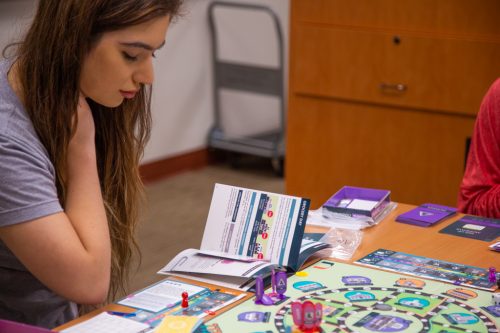
Given the importance of educating future professionals in the fields of healthcare and other education about the implications of poverty, the Dwell team’s goal was to create a game with an educational impact that does not require long setup time or a significant amount of human capital to run the event, especially in comparison to similar tools currently used for health education. On the market is another simulation product called Missouri Poverty Simulation with similar educational goals; however, this simulation activity requires a large number of resources – including several human facilitators – to run the activity, which may not be feasible for every situation. Additionally, the Missouri Poverty Simulation does not have the in-game points of reflection or “Did You Know?” poverty facts built in like Dwell does.


Project Team
Lien Tran1 3, Jill Sanko 2 4, and Deborah Salani 2 make up the interdisciplinary design team, which brought together experience in simulation, game design, social impact games, poverty, and nursing education in order to make Dwell a reality.
Thank you to Yui Matsuda 2 for her support and assistance in researching the impacts of Dwell and to Casey Lue 1 and Pablo Obando 1,2 for their graphic design contributions. Special thanks to Susana Barroso-Fernandez 2, Jacqueline Lopez 2, and Laura Albuja 2 for their contributions in the early phases of developing Dwell. This project also received pilot funding from University of Miami’s Center for Communication, Culture, and Change to prototype and test Dwell.
1 University of Miami, School of Communication
2 University of Miami, School of Nursing and Health Studies
3 DePaul University, Jarvis College of Computing and Digital Media
Facilitation Materials
When facilitating Dwell, you may wish to use these slide decks to (a) introduce “How to Play” and explain the gameplay and (b) to share real-world “Did You Know” facts regarding poverty during each in-game Sunday.
How to Play
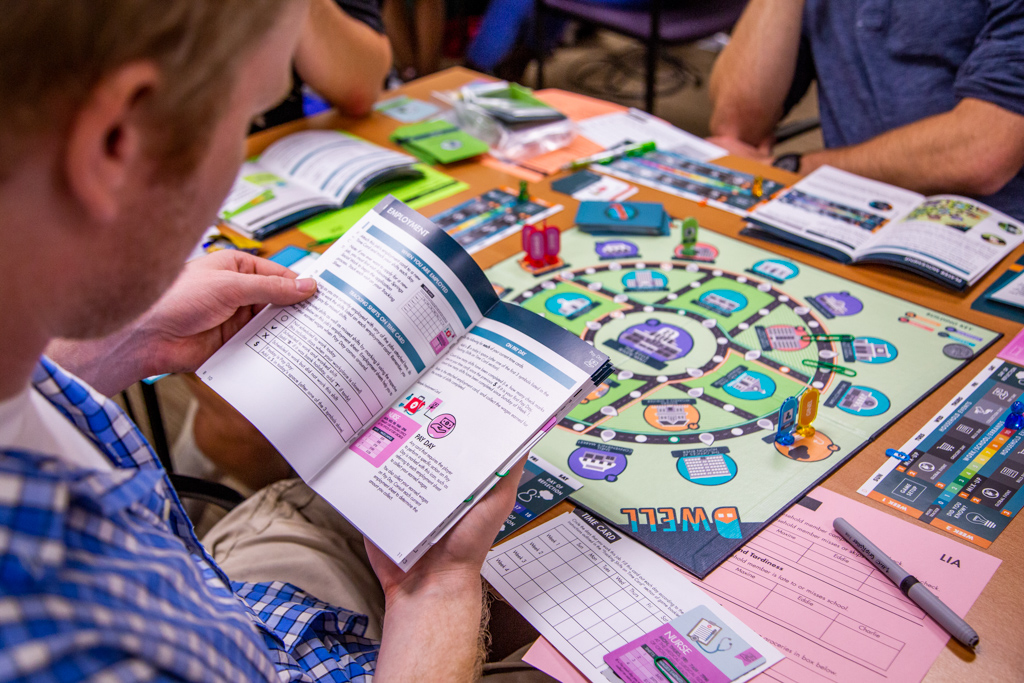
The link will take you to a Google Slides presentation. To hear the embedded audio instructions, please go to File > Download > Microsoft PowerPoint (.pptx). Open the file in MS PowerPoint to see, play, hear audio instructions.
"Did You Know" Facts
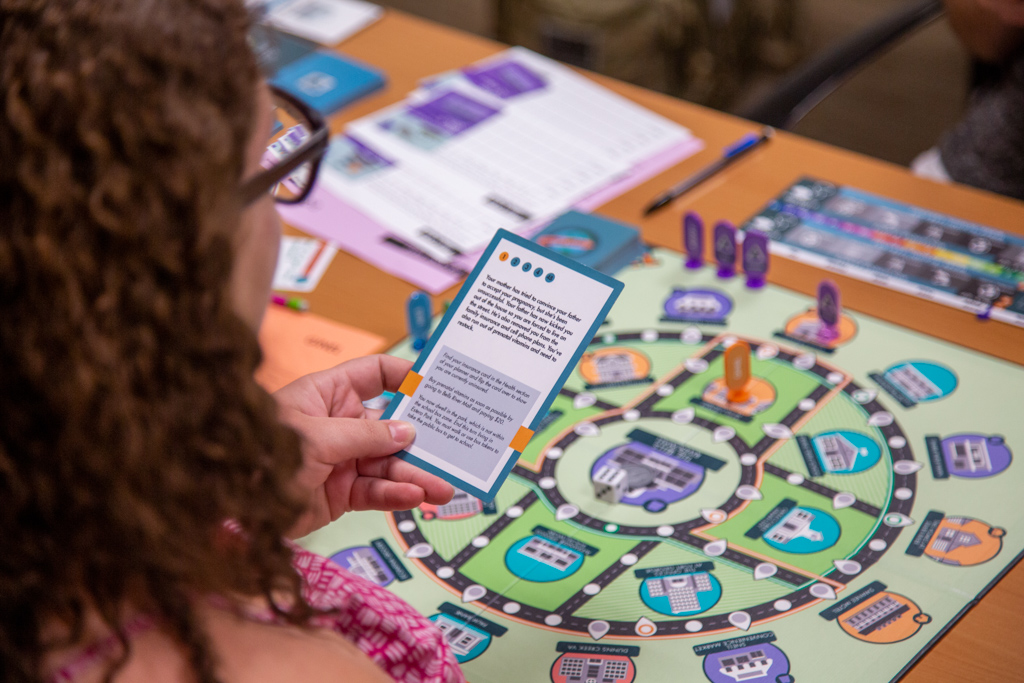
The link will take you to a Google Slides presentation. It is recommended that one person in each group (one per game set) loads the deck on a device and shares one Did You Know fact on each in-game ‘Sunday’. Instructions for how best to navigate this deck are in the first few slides.
Printable Game Sheets
Each player will need a tracking sheet and may need one or more time cards.
Tracking Sheets
Click to download the PDF, which includes one sheet labeled for each of the 5 characters. Each player should use the sheet that corresponds with the character they are playing.
Time Cards
The PDF includes 3 Employment Time Card per sheet. Each player should use one timecard per job they are currently working (which might change over the course of the game).
Research Publication
Sanko JS, Matsuda Y, Salani D, Tran L, Reaves R, Gerber K. (2021, January). A comparison of learning outcomes from two poverty simulation experiences. Public Health Nurs. 2021;00:1–12. https://doi.org/10.1111/phn.12853
Findings
Findings from a comparative evaluation of Missouri Poverty Simulation and Dwell show that “students’ perceptions regarding their willingness to help those living in poverty also improved after both simulation activities. Dwell™ was found to significantly increased students’ empathy toward those living in poverty” (Sanko et al, 2021).
Awards
- 2022 Games+Learning+Society Creativity and Design award, Irvine, CA, USA
- 2019 International Serious Play Awards, board game Bronze award, Orlando, FL, USA
- 2019 International Meeting for Simulation in Healthcare (IMSH)’s SimVentors Showcase, Runner-up award in the Best in Show, Academic Games category of the Games Arcade, San Antoino, TX, USA | Full Program
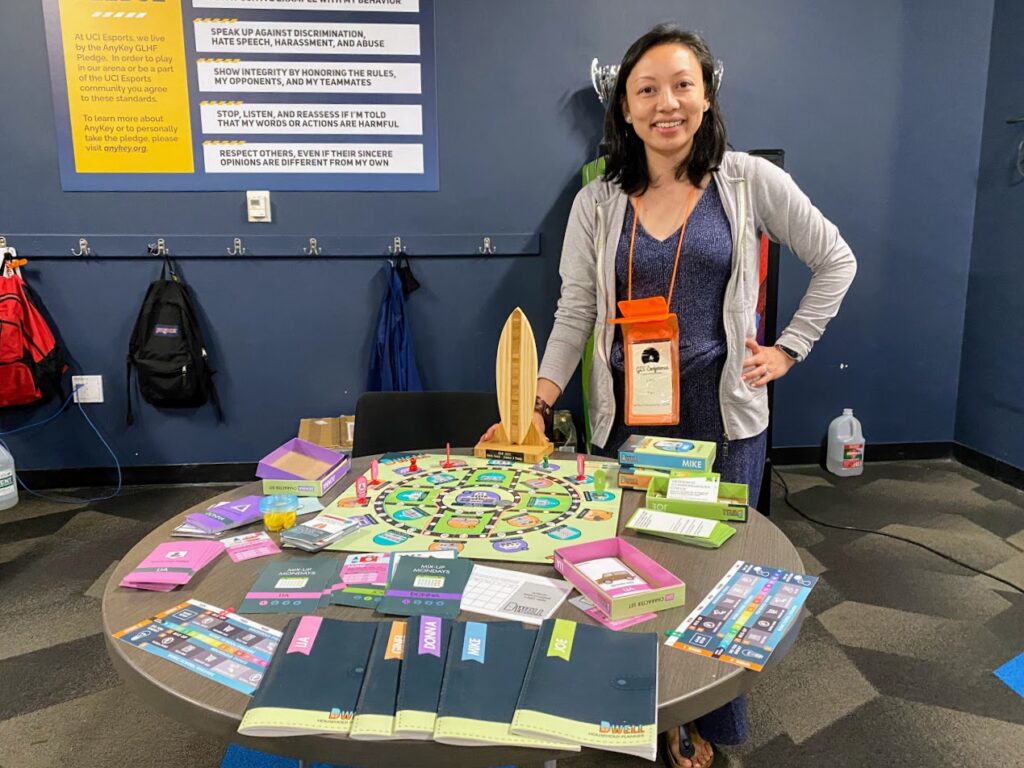
Exhibitions
- 2022 Games+Learning+Society Creativity and Design award, Irvine, CA, USA
- 2019 International Serious Play Awards, board game Bronze award, Orlando, FL, USA
- 2019 International Meeting for Simulation in Healthcare (IMSH)’s SimVentors Showcase, Runner-up award in the Best in Show, Academic Games category of the Games Arcade, San Antoino, TX, USA | Full Program
Press & Resources
- University of Miami’s Academic Technologies (2018). “Roleplay and Simulations“.
- Gutierrez, B. (2018, October.) ‘Dwell’ tabletop game shows students daily struggles of poverty. University of Miami’s News@TheU.
